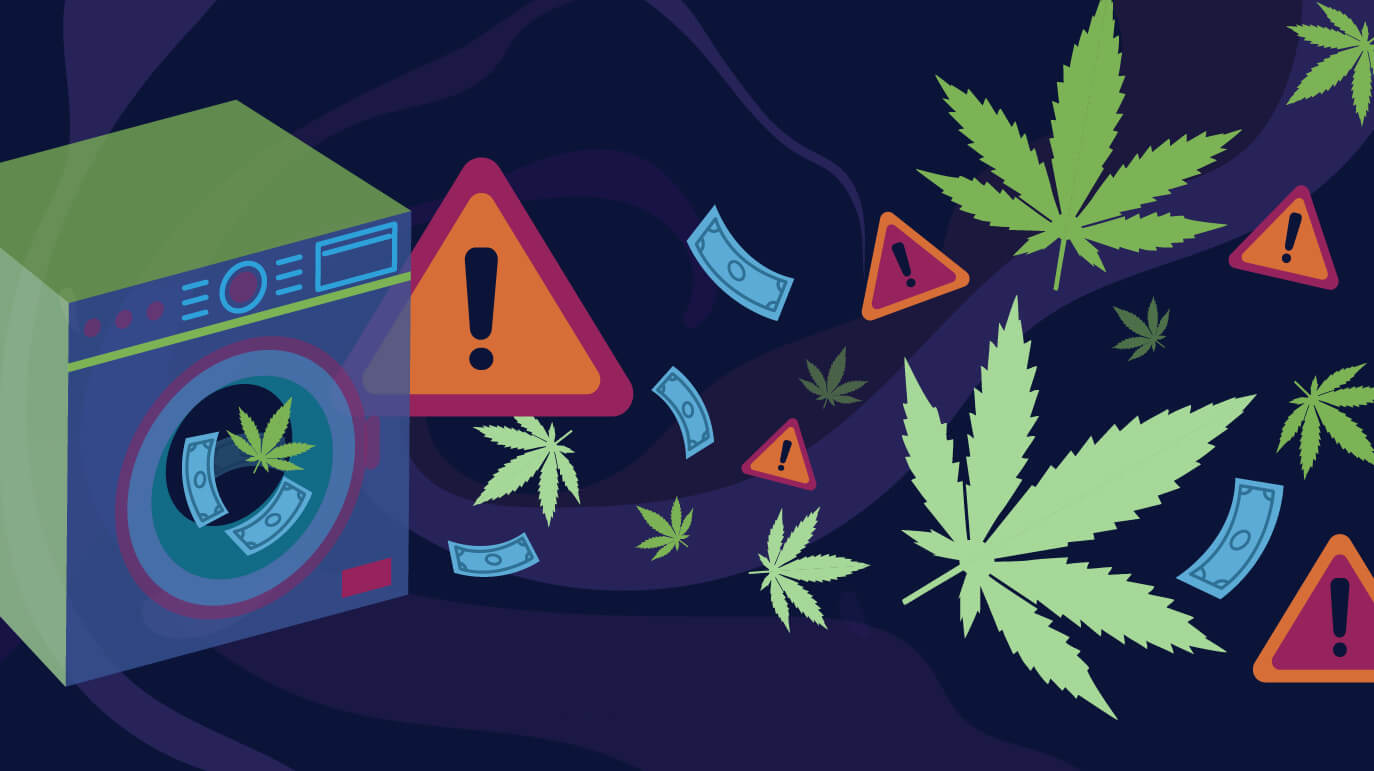
It wasn’t that long ago that banks stayed clear of marijuana-related businesses (MRBs). But widespread legalization of the cannabis industry for medicinal and recreational purposes in the US is bringing this divisive plant further into the mainstream. Cannabis and marijuana-related businesses open up a host of anti-money laundering (AML) compliance challenges for banks. This guide is designed to help banks sort through the haze of achieving AML compliance with legal cannabis businesses.
The State of Legal Cannabis in the US
Cannabis (or marijuana) legalization has come a long way in the past few years. Thirty-eight states have authorized marijuana for medicinal purposes while eighteen states (and Washington, DC), have legalized it for recreational usage. The US cannabis industry employs approximately 428,000 people and generated about $25 billion in sales. By at least one count, there were almost 7,500 legal cannabis dispensaries operating in the US as of 2020.
It’s also important to note that the legalization of cannabis has had a serious impact on drug cartels’ bottom lines. Consumers can now buy high-quality cannabis from legitimate businesses and don’t have to do business with shady drug dealers anymore. This shift in dynamics means cartels are finding new sources of revenue such as illegal weapons or human trafficking.
Legal Cannabis Brings AML Compliance Challenges
Because marijuana is still illegal on a federal level, these businesses can’t open bank accounts or accept credit card or debit card payments with many nationwide banks. Cannabis dispensaries must rely on cash if they can’t offer modern digital payment methods to their clients. This makes legal dispensaries targets for thieves who know there are large sums of cash on premises. It also makes it perfect for money laundering.
Avoiding such dangerous scenarios like this are why cannabis dispensaries need legitimate banking services. Beyond enabling electronic payments and reducing their dependence on cash, these businesses also need the same banking products so they can easily pay their vendors, employees, file tax deductions, and access loans to scale their operations – like any other business. Without it, their dreams of expansion or even their ability to operate safely on a day-to-day basis could go up in smoke.
The Legal Cannabis Industry’s Biggest AML Compliance Concerns
Despite the industry’s tremendous growth, banks face two key challenges when it comes to providing financial services to the legalized cannabis industry.
- Marijuana is still illegal at the federal level. This is arguably the biggest hurdle that financial institutions (FIs) face when it comes to servicing the cannabis industry as well as adjacent, marijuana-related businesses. The federal government still classifies marijuana as a Schedule I substance. This can put banks in a precarious position when it comes to offering cannabis businesses financial services.
- Banks need to stay compliant with AML laws. The key challenge for banks is whether doing business with a cannabis dispensary puts them at odds with the law. This depends heavily on the jurisdictions where the bank operates. For example, banks with operations that are focused in a state like Colorado – where recreational marijuana usage is legal – can do business with the cannabis businesses in that state. On the other hand, banks that operate in multiple states must be careful that they comply with federal regulations since what is legal in one state might be illegal in another.
5 Tips for Banks Serving Legal Cannabis Businesses to Achieve AML Compliance
Both financial institutions and the cannabis industry will continue to face these issues as marijuana continues to become more mainstream and legalization broadens around its usage. Banks have a significant role to play in both helping these businesses to operate successfully and helping prevent them from becoming money laundering targets.
Here are five steps banks can take to navigate through the weeds of working with legalized marijuana businesses.
- Perform due diligence for adverse media. The marijuana industry is still emerging from decriminalization at the state level. This means that many people working in the now-legitimate industry are likely to have criminal records. Banks who are considering doing business with a legalized dispensary or MRB should perform a thorough background check on the company’s staff for potential adverse media problems. If the bank discovers the marijuana dispensary employs individuals with criminal records, it’s important to know how long ago the offenses took place.
- Perform due diligence on marijuana businesses. Banks must take a close look at the beneficial ownership of the business itself. Marijuana dispensaries have to undergo a licensing process to operate in their local community. Banks should review the business’ licensing materials and registration procedures for potential red flags. These materials can also shed light on the business’ beneficial owners. This includes angel investors who are not involved in daily business operations but who provide it with significant funding. Banks must make sure the people connected to the business are not a high risk.
- Monitor all marijuana business transactions. Even with marijuana becoming an increasingly legal market, there are still opportunities for criminals to use legitimate businesses to launder money. Banks should look at the marijuana business’ activities to make sure they match the profile. A dispensary based in Colorado that delivers international shipments is a serious red flag. So is a marijuana business that brings in more revenue than another business of its size. Banks need to watch these transactions carefully to ensure these legitimate marijuana businesses are indeed behaving as expected.
- Put the right AML monitoring controls in place. About 99% of legitimate marijuana dispensaries and MRBs are trying to do the right thing and operate respectable businesses. However, there will always be that 1% that will work to skirt legalities. To catch this small group of scofflaws, banks need to ensure they create the right level of friction. Having the right controls in place enables banks to monitor how these businesses are acting and quickly respond to suspicious activities.
- Prepare to defend your bank’s decisions. While cannabis is gaining in legality, it is still highly regulated at the federal level. Banks who do business with legalized cannabis dispensaries should prepare to explain their decisions and CDD findings to federal regulators. For example, if a suspicious activity report (SAR) was filed, what steps did the bank take to follow up? Make sure you understand whether state or federal regulators are responsible for overseeing specific operations. Having a strong relationship with federal regulators could also pay dividends in the future if federal laws regarding cannabis are ever relaxed.
The seeds of the legitimate cannabis industry are already planted. By now, it’s clear this industry’s strength is not a smoke show. Banks can help this young industry grow its legitimacy by helping legal marijuana businesses access important financial services. At the same time, banks must ensure that these new clients operate within the law. Following these tips to helping legalized cannabis providers will help the industry get started on a high note.
An effective AML compliance program takes continuous attention to detail. Download The Ultimate AML Compliance Checklist for FIs to make sure your bank checks all the boxes.
Share this article:
Related Posts
0 Comments5 Minutes
Spotlight on Denmark: Fraud and Financial Crime Insights from ‘Den sorte svane’
The recent documentary mini-series "Den sorte svane" has sent shockwaves through Danish…
0 Comments9 Minutes
Enhancing AML Transparency with Smarter Data
Doesn’t it seem like new financial threats crop up in the blink of an eye? That’s why…
0 Comments10 Minutes
Enhancing Anti-money Laundering Systems Architecture
A speaker at a financial crime conference I recently attended summed up the problem with…
